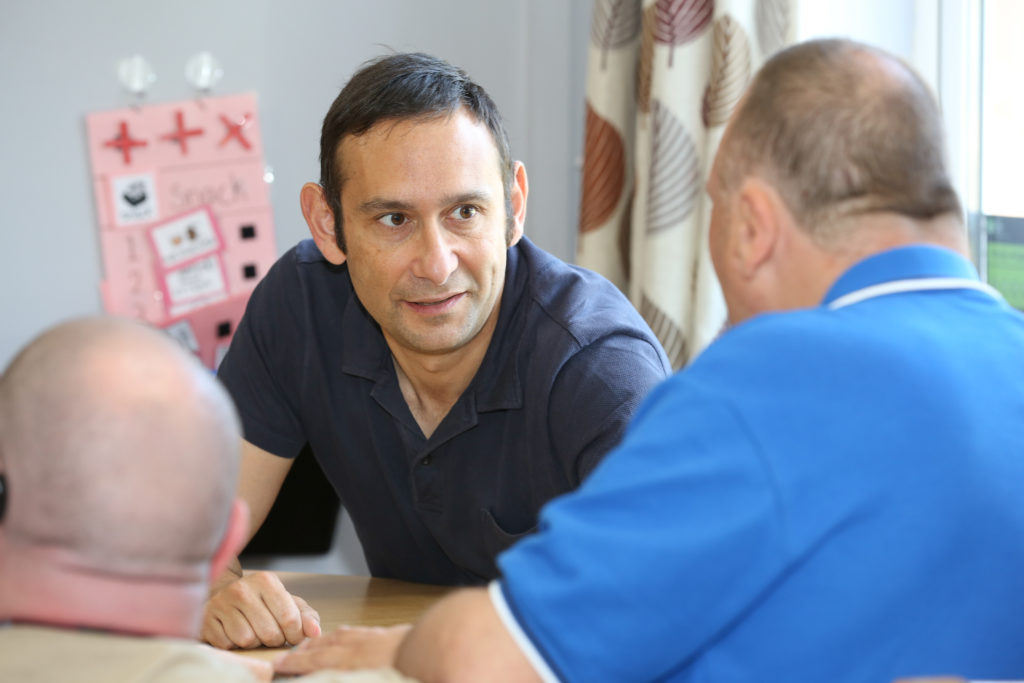We need to flip the narrative on disability benefits

As Chief Executive of Sense, I think it is critical for leaders to engage with policy debates but to be constructive and offer solutions.
Charities must be true to their beliefs and opinions but be careful about what they choose to speak about and what they don’t. We need to be really careful about tone of the public debate and lead by example in being measured in our campaigning and showing tolerance for other people’s views.
However, it has become difficult to stay quiet and harder to conceal my growing anger when I see every day more and more divisive comments and rhetoric about disabled people and the benefits system.
This is not confined to one political party. Indeed, the Labour Party and Conservative party are now competing over a more hard-line approach which will only serve to harm disabled people.
The Prime Minister has said that ‘he will squeeze benefits to fund more tax cuts for workers as part of his pitch to voters ahead of the general election.’
The Shadow Work and Pension Secretary, Liz Kendall, has said ‘For all the Tory claims about being tough on benefits, over the next five years there will be 600,000 more people on sickness and disability benefits.
The overwhelming number of disabled people need the support of the benefit system. The use of language matters. It is also important to show integrity and promote positive attitudes towards disabled people. Being in receipt of benefits doesn’t make disabled people ‘shirkers or scourgers’ who don’t want to work.
Sense research found that a quarter of people with complex disabilities did not have a paid job or volunteering role but would like one. In the words of one person who took part in the research: “Jobcentre staff make deafblind people like me feel like we’re faking it because we don’t want to work. That isn’t the case for me, I’d love to [work] but trying to find something suitable for me is hard”.
We need to flip the narrative when talking about disability benefits, so we stress how benefits are a positive thing that enable disabled people to live an independent and active life and be more visible in their community.
Some commentators have said that the disability system invites abuse. Promoting the idea that life on disability benefits is a choice or that benefits are easy to assess is dangerous. It fuels distrust and negative attitudes towards disabled people.
Our disability benefit system does not invite abuse. It is incredibly difficult to get disability benefits. It is not about going to your GP and self-declaring. Claimants are assessed and often reassessed to keep benefits.
For many people we support, we know that claiming PIP is often incredibly difficult. It’s distressing how many don’t get what they should because the process it is so overwhelming. Only a miniscule amount of spend on disability benefits is paid out to fraudulent claims, for example, the DWP’s annual report on benefit and fraud show that estimated PIP fraud was just 0.2% of PIP spending in 2022-23.
Proposals to cut benefits could have a negative impact on the lives of disabled people at a time when the cost of living crisis is hitting disabled people the hardest. Far from being generous, we know that benefits such as Personal Independence Payment (PIP) don’t cover the additional cost of living with disability. Sense research found that 46% of people with complex disabilities found it difficult to afford costs related to their disability.
Whilst, we are all affected by rising prices, disabled households are often hardest hit because of their circumstances. The cost of living crisis has put tremendous pressure on disabled households, with more than half in debt, and nearly a third admitting to skipping meals to save money.
Disabled household faced higher living costs even before the cost-of-living crisis, due to paying more for essential goods and services, such as heating, insurance, equipment, and therapies. Many disabled households have to buy specialist equipment and use more energy for vital services like extra washing, charging wheelchairs and powering oxygen machines. Transport costs are often higher due to a reliance on taxis or adapted vehicles. And for many, working full time is not an option, while others are locked out of employment because of caring responsibilities.
In the current narrative, we have ignored the fact that huge numbers of disabled people want to work, are able to work but need support to be able to do it.
All political parties need to show more courage and imagination and develop polices that are about removing the barriers disabled people face, helping them to secure a job and being supported in the workplace.
Negative attitudes, unfair recruiting practices, and a failure to provide employers with the support their need must be addressed. We need to do more to promote Access to Work, reduce the backlog and reduce the burden on disabled employees by making it fully accessible.
Jobcentres are not doing enough to support disabled people, with Sense polling finding that half of disabled jobseekers didn’t feel that they had the support and equipment they needed to look for work. All political Parties should commit to a £5 million Jobcentre Assistive Technology Fund, which would equip every Jobcentre with assistive technology to support disabled people into work.
Disabled people want someone to fight their corner, understand the issues disabled people face and champion them across government. We don’t have that at the moment.
Instead of threatening more cuts to benefits, the current government and Labour Party should be coming up with plans to strengthen our welfare system, provide more tailored employment support for disabled people, and above all, work with disabled people to shape these policies. Otherwise, it is disabled people that will lose out.

